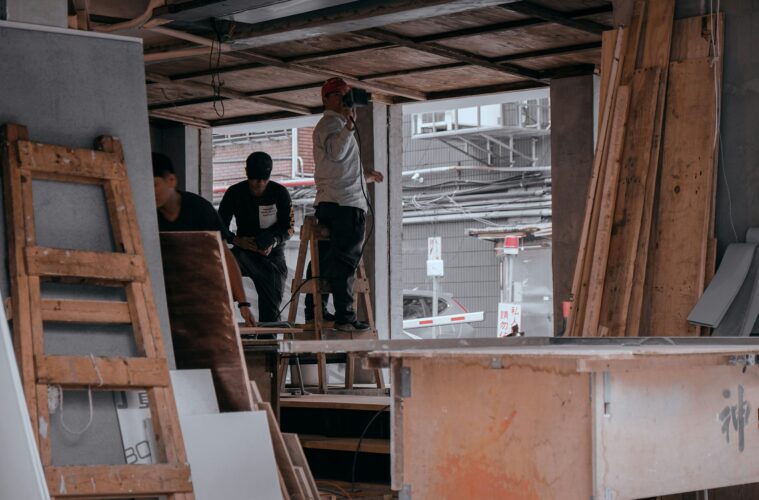When planning a home renovation, understanding the project timeline is crucial for managing your expectations and making informed decisions. Various factors influence how long a renovation will take, and being aware of these elements can help you prepare for the upcoming changes in your home. From minor updates to extensive renovations, knowing what to anticipate can ease the stress that often accompanies such large-scale projects. This article provides a comprehensive overview of typical timelines for home renovations, while highlighting key considerations to ensure a smooth process.
The Scope of Your Renovation
The scope of your renovation is a primary factor affecting the timeline of your project. Homeowners must decide whether they are pursuing minor updates, such as fresh paint and new fixtures, or significant changes, like a complete kitchen overhaul or adding an extension. Minor cosmetic changes can usually be completed in a matter of weeks, while major renovations may take several months or even longer.
Kitchen renovations, which often involve new cabinetry, countertops, and appliances, can take six to ten weeks on average, depending on the complexity of the design and existing conditions. Understanding the scope of your renovation will provide a clearer picture of the expected timeline and help you make decisions accordingly.
Initial Planning and Design
The beginning phase of any renovation starts with planning and design, which is important for setting a realistic timeframe. During this phase, you will work with designers or contractors to outline your vision, select materials, and finalize the project layout.
This process can take anywhere from a few weeks to several months, depending on how quickly decisions are made and the availability of preferred materials. For homeowners who might feel overwhelmed, it can be beneficial to contact Henderson roofers or experts in your area who can guide you through the design process and ensure that your project aligns with local regulations and aesthetic considerations. Immediate planning helps avoid delays later in the renovation when unforeseen issues may arise, resulting in a lot of stress and a stretched timeline.
Permitting and Legal Considerations
Once the design is complete, obtaining the necessary permits and approvals is the next vital step. Depending on your location, permitting can take anywhere from a couple of weeks to several months, particularly if your renovation includes structural changes. Engaging local contractors who understand the permitting process can help expedite this stage of the timeline.
They can assist you in ensuring that your plans adhere to local building codes and regulations, which can mitigate delays and increase the probability of a smooth approval process. Having the correct permits keeps your project compliant and prevents potential fines that could impact your renovation timeline.
Procurement of Materials and Labor
Securing materials and labor is another critical phase in any renovation timeline. Homeowners often underestimate the time required to source materials that meet their design vision and budget. Depending on the type of materials chosen, standard versus custom items, the procurement process can lead to delays. It’s important to order materials ahead of the construction start date to ensure they arrive on time.
Labor availability can vary. Contractors may have multiple ongoing projects. Engaging with local experts early can streamline coordination. They have established relationships with suppliers and can often secure the best rates and timely deliveries, further speeding up the renovation timeline.
Construction Phase and Problem-solving
During the construction phase, rigorous work begins and often encounters unexpected issues, such as structural complications, delays in material deliveries, or weather-related interruptions. On average, a remodel might take six to eight weeks for smaller projects, while larger undertakings can stretch into several months or even years.
Effective communication with your contractors is key during this stage to resolve any issues efficiently and minimize downtime. Understanding that delays may be an inherent part of the remodeling process can help you maintain a level of patience and flexibility that is often required during renovations.

Post-Construction and Final Touches
As construction nears completion, the focus shifts to the finishing touches. This includes final inspections, cleaning up the construction site, and making small adjustments to ensure that everything is functioning optimally. This phase is usually quicker compared to earlier stages, typically taking one to two weeks.
Completing quality checks and addressing any little issues before declaring the project finished is important. Homeowners should plan for a walkthrough with their contractors to ensure that all work meets their expectations and complies with any agreed-upon specifications. This final phase brings a sense of closure to the project, transforming a construction site back into a fully functional home.
Emotional Impact of Renovations
It’s important to acknowledge the emotional toll that renovations can take on homeowners. The chaos of construction can create stress if families are living in the home during the process.
Planning for possible interruptions, creating living spaces away from the noise and mess, and maintaining open lines of communication with contractors can significantly ease this burden. Keeping a positive mindset and focusing on the result can help you navigate the ups and downs that usually accompany a significant home renovation. Understanding that inconveniences are temporary can contribute to a more manageable and enjoyable experience throughout.
Successfully navigating a home renovation requires awareness of various timelines and phases. From the initial design and planning stages to obtaining permits, sourcing materials, and managing construction, each aspect has its own timeframe. Planning, communication, and flexibility are critical to ensuring a smooth process. The emotional aspect plays a vital role, and finding ways to manage stress will help bring the renovation experience to a satisfying close.
Published by HOLR Magazine.


